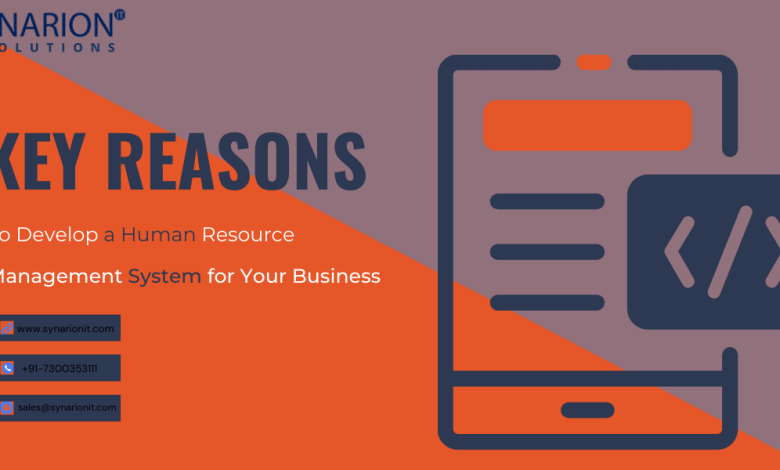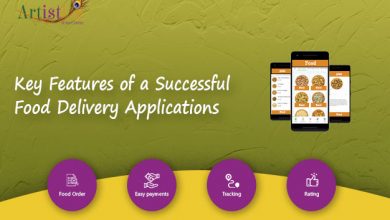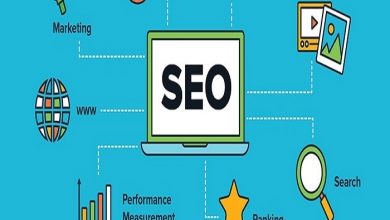Key Reasons to Develop a Human Resource Management System for Your Business

Looking Into the Benefits and Development Processes Behind HRMS
With the stunning growth booms in the 2000s and 2010s, companies realized that proper HRMS software development solutions can create untold strategic value.
HR departments have seen a considerable upgrade in equipment, with a digitization process replacing the clipboards and pens with software to handle everything HR departments deal with.
We’re talking about HRM software that deals with time-consuming processes like
- Payroll management,
- Employee absences,
- Employee recruitment and retention,
- And cost savings!
But, hey. We’re not going to be the people asking you to take us at our word.
Instead, keep reading to know more about the different kinds of HRMS systems and why you need to get one for your HR department as soon as possible.
The Need for HRMS Systems: A Deeper Look Into Why and Its Objectives
A Layman’s Introduction to HRM Software
Before we head over to how HRM software development can help your company, there’s a simple question we’ve got to answer:
Why do you need Human Resources Management Software?
Essentially, Human Resources Management Software is a program that combines all of the different HR processes in a single place.
These programs aim to enhance employee performance through better management and speed up HR processes to reduce the investment of human labour in them.
With HRM software, you will get benefits like easy storage of employee data, easy retrieval of the same data, and smoother functioning of business processes.
The Objectives of HRM Software
And if that wasn’t enough for you, it’s time we looked at the primary objectives of HRM software, starting off with the first and most important point:
1. Achieving Organizational Goals
Fulling organizational goals are the primary, most important function of Human Resources Management software.
Sounds vague, doesn’t it?
Organizational goals are essentially everything to do with employee organization: payroll handling, staff requirements like recruitment, and dealing with retirees.
HRM software, or HRMS, takes this burden off your shoulders with a clean, uncluttered view of employee data.
To make it simpler, HRMS gives you a comprehensive, three-dimensional look at your resources and lets you handle HR processes with a few clicks.
2. Team Integration
The unavailability of the right data to the right people has long been a problem with HR departments worldwide.
That’s where HRMS comes in. HRM software comes with integration portals that allow instantaneous sharing of data.
This means your HR teams will be working better, they’re going to be working smoother, and they’re going to be working closely.
Not only that, but these factors also result in significant streamlining of your HR operations.
3. Workforce Empowerment
Human Resources departments always have a dense workload. Still, they also have to answer the various small queries employees come to them with.
With an HRMS portal (preferably for phones), you can give employees the means to easily apply for training programs, generate their payslips, or check for information like:
- Upcoming holidays,
- Checking their PF account,
- Their remaining leaves,
- Manager details and other such stuff.
Right now, this is the best way to empower your workforce: by giving them the tools they need to access relevant information whenever they need it!
Developing HRM Software for Your Company: Types and Key Reasons to
Types of HRMS Systems
You will find a confusing variety of HR-related software available on the market. This can get confusing quickly if you don’t know what you’re looking for.
Below, we’re going to take a look at the top types of HRMS systems and what they bring to the table:
1. Workforce Management Systems
Called WMS systems by professionals, workforce management systems include a range of tools to allow efficient monitoring of daily HR operations like payroll and recruitment.
Some of the key features of WMS systems are:
- Labour-cost tracking
- Work scheduling
- Compensation management
- Time and attendance monitoring
- Payroll tools integrations
2. Applicant Tracking Systems
Applicant Tracking Systems are a type of recruitment management software that lets you easily enlarge your pool of hired talent.
Effectively, these systems focus on recruitment, onboarding, and tracking of employee data.
You can expect to see features like:
- Automated job posting on recruitment websites
- Resume parsing
- Filtering applicants based on predefined requirements
- Onboarding assistance
3. Recruitment Management Systems
The second most widely used type of HRMS behind WMS systems, recruitment management systems do everything from searching for candidates to scheduling interviews.
Most of the time, the features of an RMS will include:
- Sourcing talent
- Collecting and filing applications
- Keeping accurate records of hiring actions
- Integrating with job portals
- Maintaining a database of fresh talent
Key Reasons to Develop HRMS For Your Company
Buying a subscription to one of the more well-known HRM systems out there means you will be getting a predefined set of features.
Essentially, you’re not getting to pick and choose the particular systems and functions you need your HRMS to perform.
Instead, you might be getting many systems you don’t actually need, invalidating the point of having a streamlined HRMS in the first place.
Today, it’s actually a better idea to hire developers to develop an HRMS system for your company specifically. Don’t just do it because we said it, though.
To help convince you, here are some of the Key Reasons to Develop a Human Resource Management System for Your Business:
1. Increased Productivity
Today, more than a whopping 80% of organizations worldwide use HRMS to manage employee information.
If you want to know why, that’s not too difficult a question either.
Using streamlined HRM systems provides significant benefits in retaining valuable talent.
At the same time, it also frees up your HR staff to work on other, more important things.
2. Helping With Employee Retention
Believe it or not, while getting good talent is hard, it’s even harder to keep them in your company.
That’s why talent management tools remain the most popular out of the different types of HRM tools.
That means what people want their HRMS software to do is help them recruit new talent while also making it easier to manage the performance of already hired employees.
The right HRM software will help you find potential employees with the right qualifications while also boosting the morale of present employees to keep them working for you.
3. Reducing Errors in HR Departments
Even if you hire the best people in the field, human error will always be a thing.
It’s been one of the major problems in HR departments for a while, as making a mistake with something like payroll management can lead to embarrassing situations.
HRM systems come with payroll management functions that automate payroll functions, making the process quicker and error-free.
4. Monitoring Employee Attendance
Timecard fraud is a real thing, and absent employees can cost your company a lot of money.
In fact, if you aren’t careful about monitoring employee attendance, you’re going to be billed for hours they didn’t even work!
Time-clock systems in HRMS eliminate most timecard fraud methods and automatically send reports to managers if timelines aren’t adding up.
Once your employees realize it’s impossible to be absent without their supervisor noticing, they’re always going to clock in on time.
5. Improving Data Security
Employees are willing to put up with lower pay, more work hours, and many other things. But, something they’re never going to feel comfortable with is data leaks.
Nobody wants their personal data floating around on the Internet.
That’s why data security is always a continuously improving process, focused on preventing unauthorized data access.
HRM software helps with that by putting up role-based access and system rules that prevent anybody without the proper security clearance from accessing employee data.
Some of these also provide secure servers for storing your employee data, with better security than you could ever get on the private servers most companies use.
6. Making the Most of Data Analytics
The most significant problem with not having a customized HRMS system is that your data is spread across several platforms.
This prevents you from using data analytics, one of the best tools to help your company grow.
On the other hand, when all your key employee data is kept on a single HRMS system, you can leverage that data to produce valuable insights, like your employee turnover rate, expenses behind specialists, and other things.
You can also track when an employee is considering leaving through their actions. This way, you can take action to retain the talent you’ve already spent a lot of money hiring and training.
The Importance of Choosing the Right Tech Provider: A Conclusion
After you’ve decided your HR department needs an HRMS system, the next step is finding an HR software development company to develop it.
This is the hard part for most people, as they often go for the economical option and choose a software studio with cheap rates.
We’re here to tell you that’s a big mistake.
Instead of going for the cheapest studio, you should be looking for experience, good reviews, and steady performance in the tech provider.
You want a studio that will give you your money’s worth and an up-to-date, streamlined HRMS system to boost your company’s productivity.
We’d advise checking Google reviews and asking for documentation and examples of previous projects. It also helps to pick one with patient devs willing to accommodate any last-minute changes you want.





